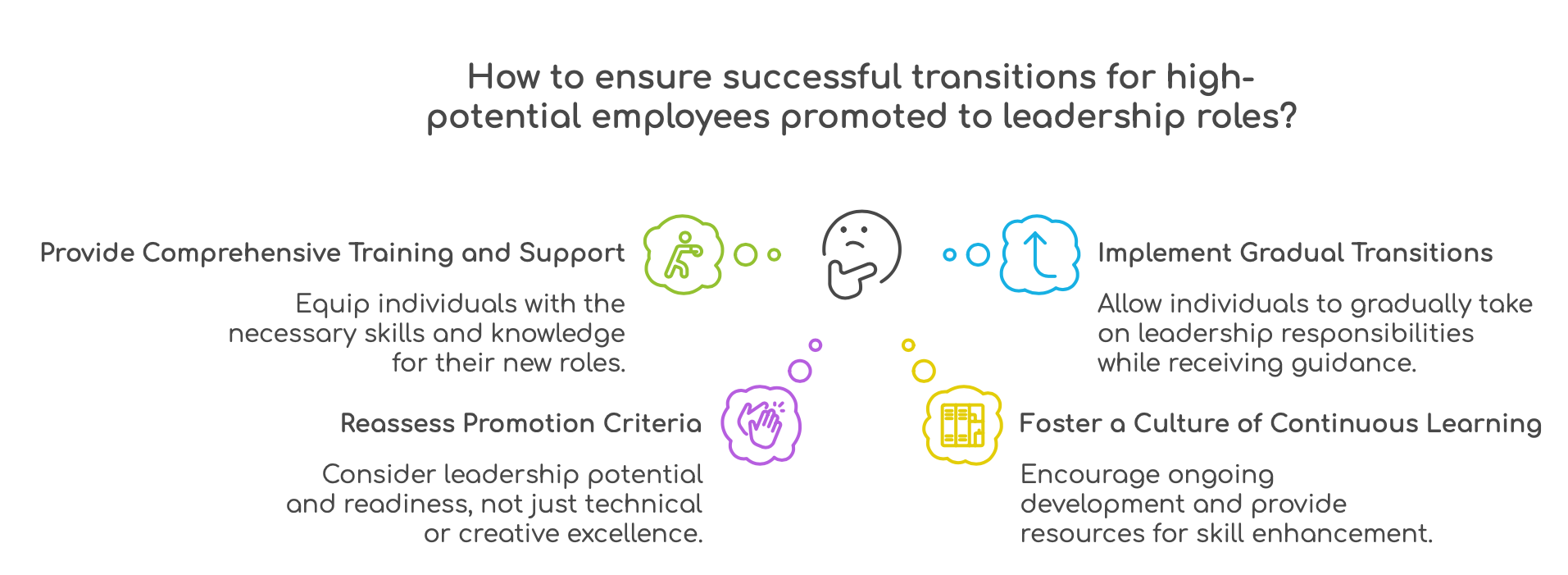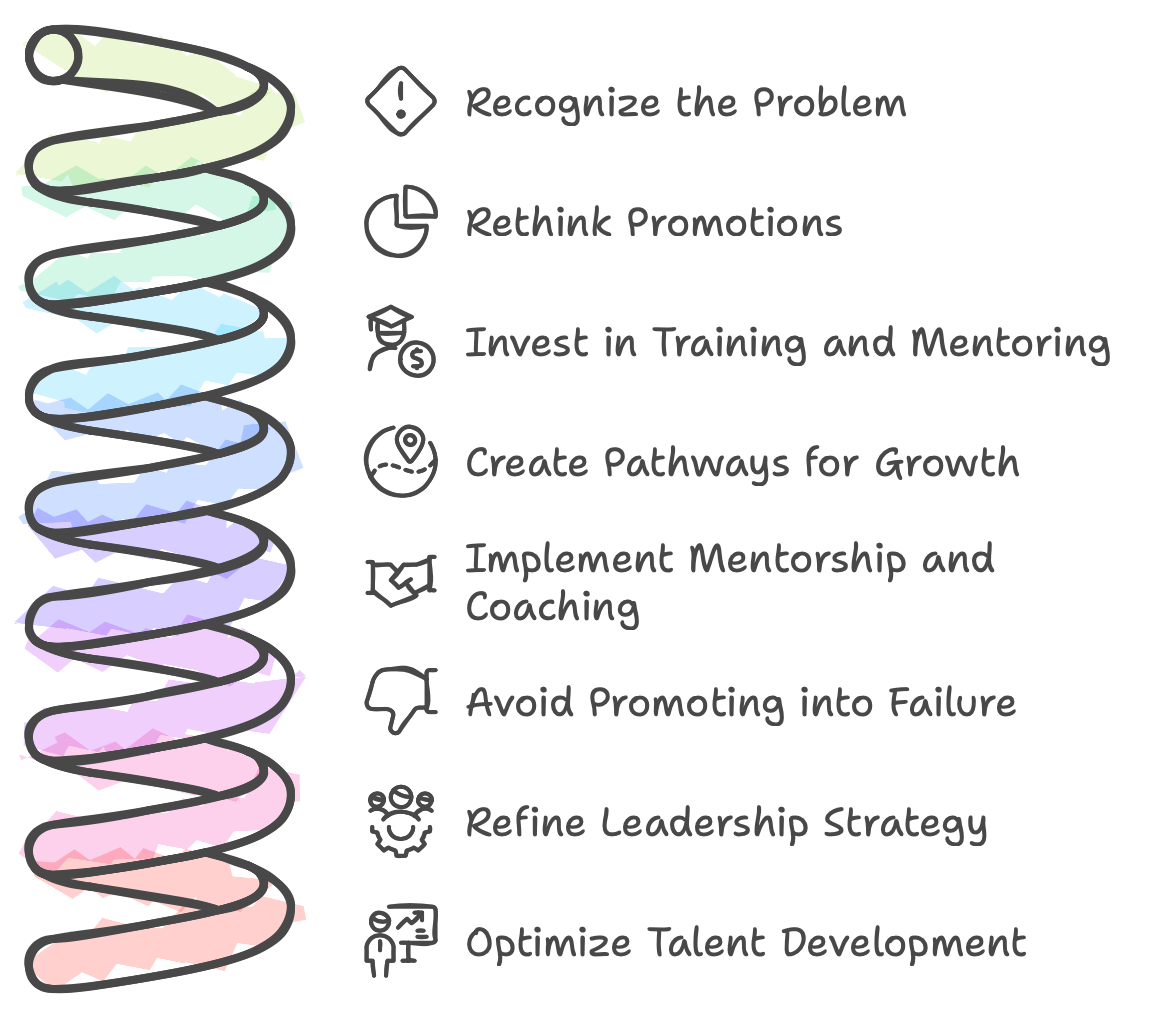The Peter Principle in Action: Are We Setting People Up for Success or Failure?
As a leader, I’ve always found the Peter Principle to be a particularly eye-opening concept. It essentially suggests that, in hierarchical organizations, employees are often promoted based on their success in their current role - until they reach a point where they are no longer competent in their new position. This tends to happen because the skills that made them thrive in their previous roles aren’t necessarily the same ones required in their next, more senior position. The result? A well-meaning promotion can unintentionally set both the individual and the organization up for failure.
What fascinates me about the Peter Principle is how common it is, especially in fast-paced environments like startups or rapidly scaling companies. We’re eager to reward top performers, but without the right preparation or development, we can inadvertently place them in roles where they’re ill-equipped to succeed. And in doing so, we hinder both the individual’s growth and the company’s progress. You also can listen to our YouTube Podcact
Case in Point: Brilliant Engineer, Overwhelmed Team Leader

Consider the case of a brilliant engineer who’s promoted to team leader. This person was exceptional in their technical work—perhaps they were the go-to problem solver, the innovator, or the one who could tackle the most complex tasks. So, naturally, they’re rewarded with a leadership role. However, once they’re in charge of managing people, resolving conflicts, and making strategic decisions, they quickly realize these are completely different responsibilities from what they were used to. Their deep technical expertise, while still valuable, doesn’t automatically equip them for leading a team, and without adequate training or support, both they and their team suffer. The individual feels overwhelmed, and their team may struggle without clear direction or cohesive leadership.
A similar story plays out when a creative marketer, known for their out-of-the-box thinking and innovative campaigns, is promoted to marketing director. Suddenly, they’re responsible for not just creative output, but for managing budgets, building long-term strategies, and overseeing a growing team. The skills that made them excel creatively don’t necessarily translate into leadership competencies, and without the right kind of preparation, they may find themselves overwhelmed and out of their depth. This kind of transition can lead to organizational drag, with the marketing department losing its edge because the director is too stretched managing responsibilities they weren’t trained for.
In both cases, the problem isn’t the individual’s capabilities - it’s that we, as leaders, sometimes assume that success in one role automatically means success in another. The fast-paced nature of startups and scaling companies can exacerbate this issue, as promotions often happen quickly, with little time for proper development. The intention behind these moves is always positive—we want to reward and recognize top talent—but when we rush promotions without the right support systems in place, we risk doing more harm than good.
I recommend you to read related articles: Internal Growth vs. External Expertise: Deciding How to Build Your Leadership Team and Empowering Employees Through Learning: How Skill Development Drives Loyalty and Retention
I recommend you to read related articles: Internal Growth vs. External Expertise: Deciding How to Build Your Leadership Team and Empowering Employees Through Learning: How Skill Development Drives Loyalty and Retention
Breaking the Cycle: A New Approach to Leadership Development

To avoid the Peter Principle and set people up for long-term success, we need to take a more intentional approach to promotions and leadership development. Promotions should be about readiness for the next challenge, not just recognition of past achievements. That means organizations must invest in training and mentoring long before someone takes on a leadership role.
At UnitiQ, we’ve helped many organizations rethink their talent strategies, focusing on leadership development as a cornerstone of sustainable growth. By creating pathways for both technical specialists and potential leaders, we ensure that individuals can grow in ways that suit their strengths, without being forced into roles they may not be prepared for. Mentorship, lateral career moves, and leadership coaching are just a few of the ways we can break the cycle of promoting people into failure.
Need help refining your leadership strategy or optimizing your team’s talent? Whether you’re looking to revise your CV, update your LinkedIn profile, or develop a people strategy that fits your growing team, we’re here to help. Let’s connect—book a call today, and let’s talk about how we can support your next phase of growth.
My Telegram
My LinkedIn
My Telegram
My LinkedIn








